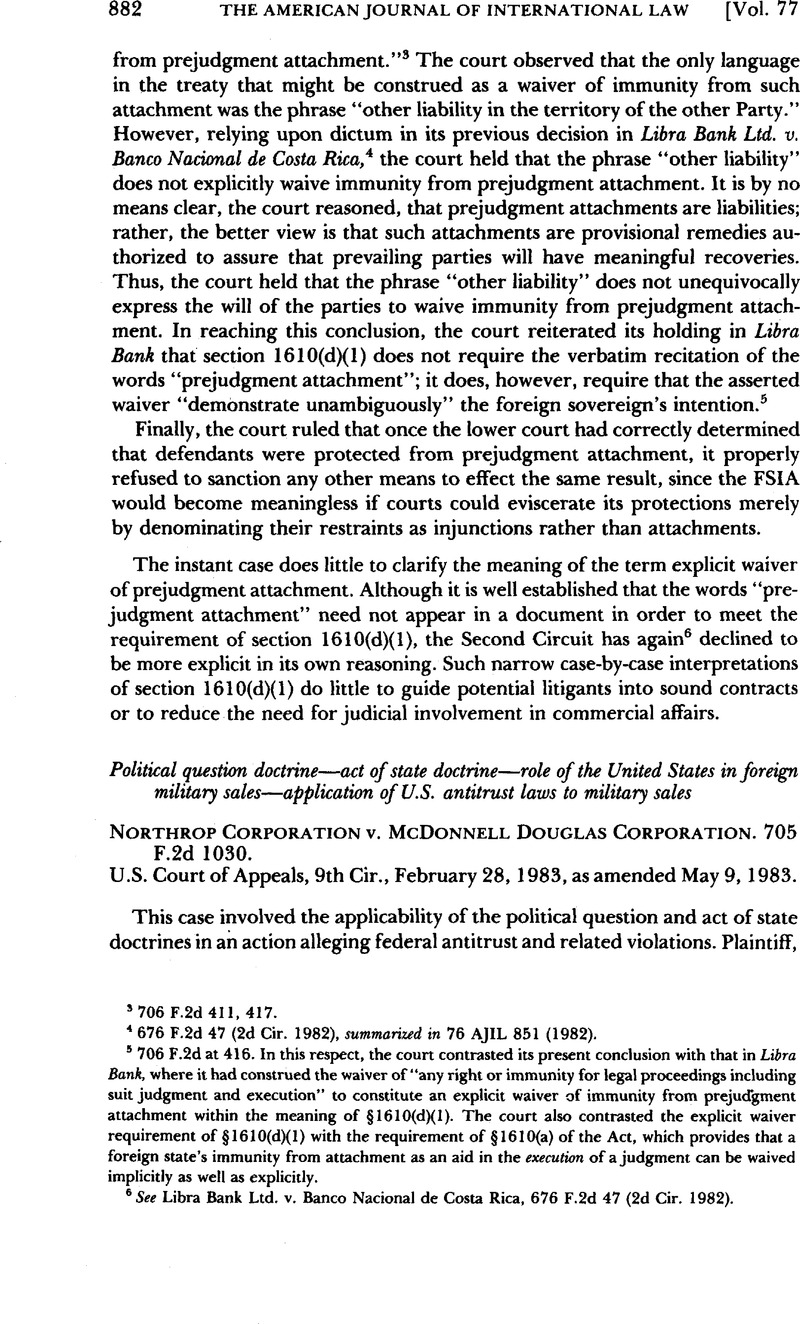No CrossRef data available.
Published online by Cambridge University Press: 27 February 2017

1 498 F. Supp. 1112 (CD. Cal. 1980), summarized in 75 AJIL 370 (1981).
2 The court also reversed the lower court’s dismissal of the defendant’s counterclaim, which the lower court described as the “mirror image” of the plaintiff’s complaint. 705 F.2d 1030, 1036, 1058–59.
3 369 U.S. 186 (1962). Defendant contended that the following three factors identified plaintiff’s claim as involving a political question, thereby warranting dismissal: (1) the impossibility of deciding the case without expressing lack of respect for the coordinate branches of government; (2) the unusual need for adherence to a political decision already made; and (3) the potentiality for embarrassment to the executive branch from multifarious pronouncements by various governmental departments. 705 F.2d at 1046–47.
4 705 F.2d at 1047.
5 The court noted that “[t]he act of state doctrine is essentially the foreign counterpart to the political question doctrine. Both doctrines require courts to defer to the executive or legislative branches of government when those branches are better equipped to handle a politically sensitive issue.” Id. at 1046.
6 Cf. Williams v. Curtiss-Wright, 694 F.2d 300, 304 (3d Cir. 1982), summarized in 77 AJIL 624 (1983).
7 705 F.2d a t 1048.
8 22 U.S.C. §2356 provides in pertinent part:
(a) Whenever, in connection with the furnishing of assistance under this chapter—
. . . .
(2) information, which is (A) protected by law, . . . is disclosed by the United States Government or any of its officers, employees, or agents in violation of such restrictions,
the exclusive remedy of the owner . . . is to sue the United States Government for reasonable and entire compensation for such practice or disclosure in the district court . . . or in the Court of Claims. . . .
9 705 F.2d at 1057 (citing 10 U.S.C. §§2301 et seq., 22 U.S.C. §§2751 et seq., 22 C.F.R. §§121.01 etseq., 32 C.F.R. §§1–100 et seq.).
10 Cf. Williams, supra note 6 (rejecting act of state defense in antitrust suit between competing manufacturers of military weapons).